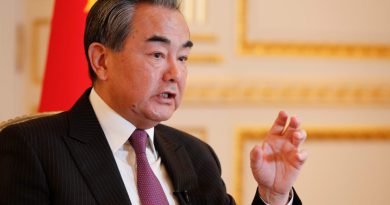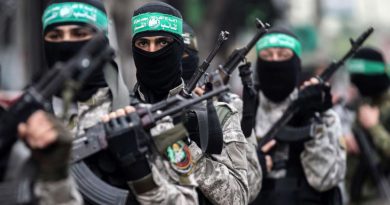Israel puts military on heightened alert after U.S. killing of Iranian commander
Tel Aviv (Reuters) – Israel put its military on heightened alert on Friday and Prime Minister Benjamin Netanyahu cut short a trip abroad after the U.S. killing of Iranian commander Qassem Soleimani drew promises of revenge from Iran.
Israel, America’s closest ally in the Middle East and Iran’s top regional foe, has not publicly responded to the death of Quds Force chief Soleimani and Iraqi militia commander Abu Mahdi al-Muhandis in the U.S. air strike in Baghdad.
But Netanyahu’s office confirmed that he would return home early from Greece. Israel’s Army Radio said the military was on heightened alert and Defence Minister Naftali Bennett met military and intelligence chiefs for a “situational assessment”.
Members of Netanyahu’s security cabinet have been asked not to comment on the high-profile killings, which Israeli media interpreted as a bid to stave off retaliation from Iran’s proxies and allies in the region.
These include the Tehran-backed Lebanese movement Hezbollah, and the Palestinian militant groups Hamas and Islamic Jihad in Gaza.
Tzachi Hanegbi, Israel’s deputy foreign minister, said the cabinet “received an instruction not to be interviewed on this subject” when asked about the commanders’ deaths.
Dana Weiss, chief political analyst for Israel’s Channel 12 news, said: “The goal is clear: not to unnecessarily complicate Israel and keep the message as unified as possible.”
But Yair Lapid, an opposition lawmaker, congratulated U.S. President Donald Trump on Twitter for killing those responsible for “murderous terrorist acts from Damascus to Buenos Aires” and that Soleimani’s “blood is forfeit”.
Israeli military spokesman Avichay Adraee said the Mount Hermon ski resort, in the Israeli-occupied Golan Heights close to the fortified frontier with Syria, had been closed “following an assessment of the situation”.
“There are no further instructions to the residents of the Golan Heights area and routine activities continue as normal,” he added.
Israel has long regarded Soleimani as a major threat. In August last year the military said it had foiled a Quds Force attack, administered by Soleimani, involving multiple drones from Syria.
And Israel accused him of leading Quds Force efforts to establish a precision-guided missiles programme for Hezbollah.
In Gaza, Hamas – which has long enjoyed financial and military support from Tehran – condemned Soleimani’s killing and sent its “dearest condolences” to Iran.
Gaza-based Hamas official Bassem Naim wrote on Twitter that the assassination “opens the doors of the region to all possibilities, except calm & stability. USA bears the responsibility for that”.
The Iranian-backed Palestinian militant group Islamic Jihad, also based in Gaza, praised Soleimani as a leader “who always brought horror into the hearts of America and Israel”.
“The alliance of resistance will not be defeated, will not be broken and its integrity will become stronger in confronting the Zionist-American project,” Abu Hamza, a spokesman for Islamic Jihad, said on Twitter.



